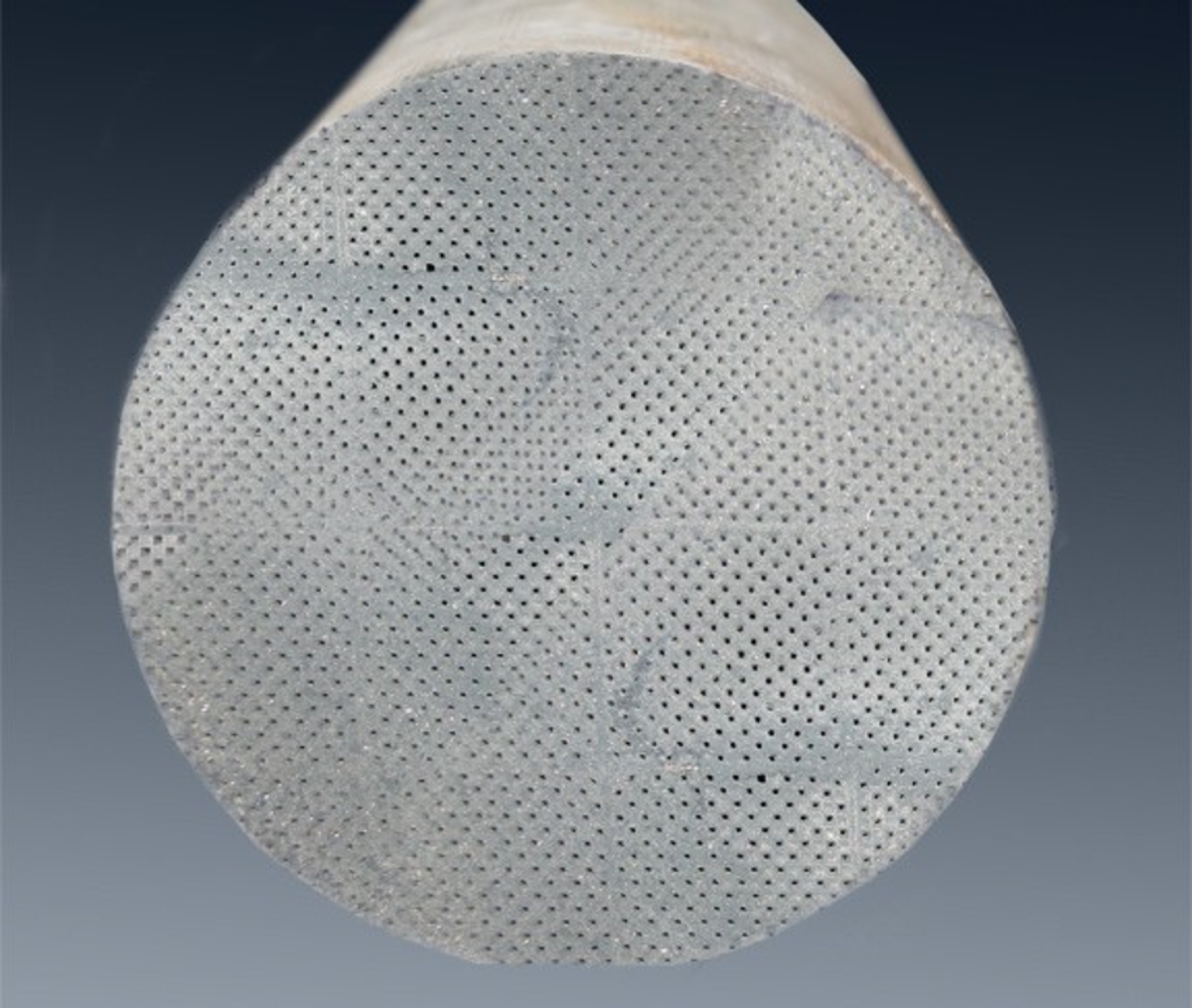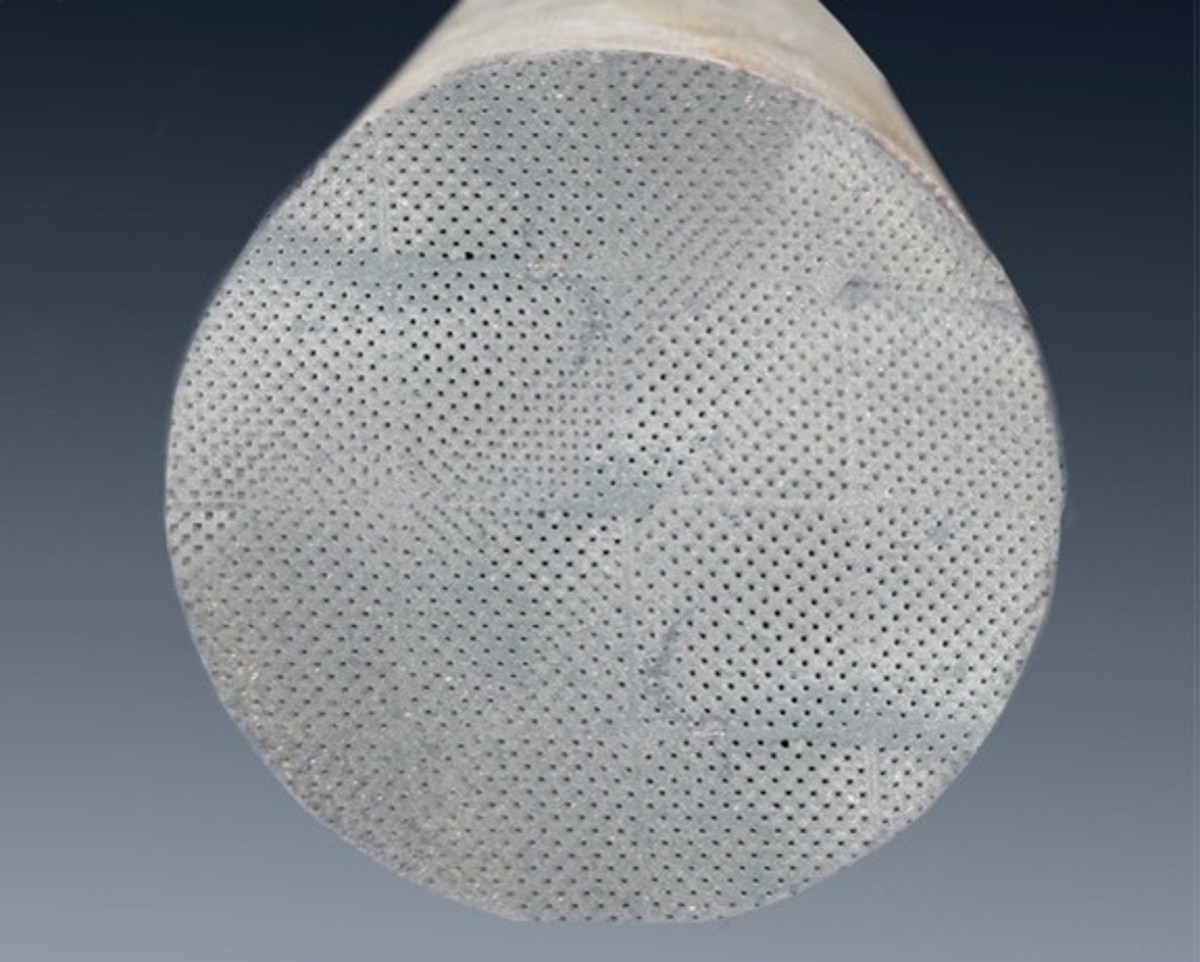Products and Customers
Diesel particulate filters: cleaning rather than replacing
Find out more about TUNAP's ecological alternative for cleaning diesel particulate filters. Discover how our patented cleaning method not only reduces emissions, but also conserves resources and avoids waste. A sustainable approach for cleaner air and a more livable environment.

TUNAP Sustainability Report | Environmental | GRI: 306-2 | GRI: 305-7
Diesel particulate filter: cleaning instead of replacement
A much better solution than reducing pollutants is not to produce them in the first place. Cleaning blocked diesel particulate filters with the TUNAP method makes a contribution in this respect.
The basic idea is to avoid replacing a component by cleaning it, significantly improving the functions and service life and not having to use the resources and energy that would otherwise be required to manufacture a new part.
By continuing to use and reuse and by cleaning the filter while it is installed, the process of part replacement becomes obsolete and no contaminated components have to be disposed of.
TUNAP diesel particulate filter cleaning is the practical alternative to energy-intensive parts replacement. It combines ecological and economic benefits.

Ensures better air: the diesel particulate filter
The diesel particulate filter (DPF), also known as soot particulate filter or simply particulate filter, filters health-endangering particles from the exhaust system.
Diesel particulate filters are installed in practically all production vehicles. The filters are able to filter out more than 98% of the particle masses.
Because of unfavourable driving profiles, in practice the particulate filters often become blocked. This gradually increases emissions and can be very expensive to rectify with regard to the energy required to replace the part and also regarding the costs of several thousand euros per filter.
With its cleaning concept, TUNAP makes sure that the diesel particulate filter can fulfil its function in the long term.

Ecological alternative to parts replacement
As opposed to buying a new part, cleaning the particulate filter with the TUNAP solution is a sustainable alternative that also saves time and money.
With the patented TUNAP method, the particulate filter is cleaned in situ and the system is ready for use within a short time.
The cleaning process requires 1.5 litres of cleaning fluid. As a result, the filter does not have to be replaced, which saves a production volume of approx. 8 kg composite material consisting of metal and ceramics per vehicle.
If just one in ten of the 15 million diesel vehicles currently on the road in Germany used this service, it would save about 10 million kilograms of metal and ceramics in industrial production. Not to mention the (metal and ceramics) waste that is not produced.
Independently tested: Win-win situation for the environment
The TUNAP diesel particulate filter cleaning method was introduced in 2009 and has proven its worth in practice. Since then, more than 1 million filters have been cleaned using the TUNAP method.
Independent institutions have certified the material compatibility and effectiveness of the method.
- Material compatibility confirmed by TÜV Thüringen
- Effectiveness tested by the VERT Association
Cleaning the diesel particulate filter in direct comparison



What is behind TUNAP diesel particulate filter cleaning?
The diesel particulate filter cleaning kit consists of a cleaning fluid (1000 ml), a rinsing solution (500 ml) and a compressed air gun. The cleaner is injected into the filter with compressed air and dissolves particles such as carbon and ash deposits in the diesel particulate filter. The neutral rinsing solution ensures that all soot and ash particles are removed easily.
Specialist repair shops buy the system components directly from TUNAP and offer the service to end consumers (motorists). The service costs between 200 and 400 euros. In most cases, savings compared to replacing the part are in the four-digit range.
Consequently, the TUNAP system delivers another aspect to reduce emissions: If organised properly by the specialist repair shop, drivers can wait while the service is being carried out and avoid the bother of driving back and forward or renting a vehicle. Emissions arising from arrival and departure journeys are halved. With an average distance to the repair shop of 20 km, instead of driving there and back twice (80 km) only one trip is required (40 km). This is also a significant contribution towards reducing nitrogen oxides (NOx), sulphur oxides (SOx) and other significant air emissions.

GRI: 306-2:
Management of significant waste-related impacts
GRI: 305-7:
Nitrogen oxides (NOx), sulfur oxides (SOx), and other significant air emissions
Area: 300 Environmental
More information:
TUNAP diesel particulate filter cleaning
Associated articles:
How to effectively avoid low-speed pre-ignition (LSPI)
